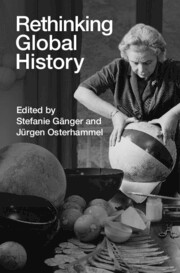Over the last three decades at least, historians of different orientations have striven to overcome the nation-state as the unit of analysis to instead highlight the global dimension of phenomena, establish comparisons, or analyze the intersections and interconnections between different political entities. The attempt to apply this approach to empires has led to the development of a ‘transimperial’ research agenda, which focuses on spaces of intersections, encounters, and clashes of colonial rulers and anti-colonial actors within and across empires and brings under the same analytical framework competition, cooperation, and connectivity. In the transimperial approach, the comparison has been intended more as a historical object of investigation than as a method of historiography. Through the ‘politics of comparison,’ different historical actors observed and assessed other empires’ ideas and practices, aiming to emulate, reject, or mix them and giving place to new models of colonial policies.
We seek original contributions that, through the lens of the politics of comparison, focus on four latecomer empires, namely Germany, Italy, Belgium, and Japan – the case of the United States which also falls within this chronology is not part of our project – that started their colonial expansion at the end of the nineteenth century. In these countries and their colonies and protectorates, heated debates took place around the search for (historical or current foreign) models, and politicians, activists, and intellectuals often demanded the transimperial circulation of colonial knowledge, be it legal, political, or scientific.
In particular, we are interested in two distinct yet bordering fields:
Models of colonial policies from a global perspective: for example, the debate on direct/indirect rule, regimes of belonging (citizenship, colonial subjecthood), education policies targeted at colonial subjects, co-optation in the colonial administration of local peoples, etc.
Transimperial circulation of colonial knowledge in scientific fields such as medicine, agronomy, anthropology, legal culture, etc.
Selected scholars will be invited to present their research either in individual seminars or larger workshops that will take place in 2025 at the University of Naples Federico II or the University of Eastern Piedmont (Italy). The organization will fully reimburse the scholars coming from Europe; in other cases, it will assess on a case-by-case basis.
Papers will then be published as contributions in a peer-reviewed collective publication in English edited by the group working on the project “Imperial Entanglements: Latecomer Colonial Empires and the “Politics of Comparison” (1880s-1940s)” (PRIN 2022), a project jointly funded by the Italian government and the European Union (see www.imperialentanglements.it)
Applicants should submit:
1. an abstract of their paper of about 500 words
2. a short biography (no more than 300 words)
Email: imperialentanglements2022@gmail.com
Deadline: 30 November 2024
Acceptances will be sent by December 2024
Consult the project organizer's website "Imperial Entanglements" for more info.


